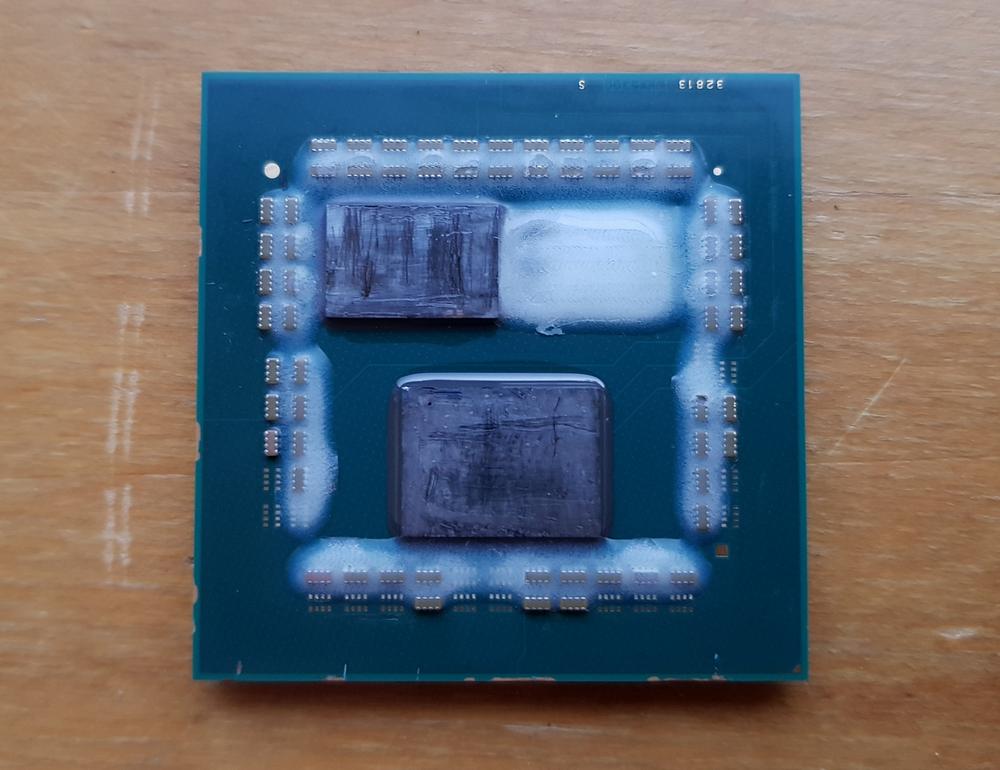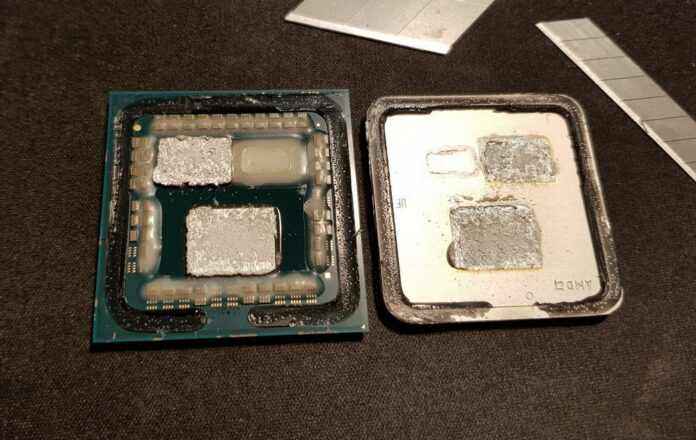A Ryzen 7 5800X3D owner has managed to improve temperatures by delidding his CPU and replacing the soldered TIM (Thermal Interface Material) with liquid metal.
Such operation is not trivial, especially with a processor such as the 5800X3D which carries many small capacitors all around its chiplets, where any small movement in the wrong direction may result in permanent damage to the CPU.
Add to that a thinner-than-normal silicon layer between transistors and IHS (Integrated Heat Spreader), caused by the necessity to keep similar Z heights to other Ryzen CPUs (for compatibility reasons) when also accounting for the additional stacked 3D V-Cache. The upshot is a much harder CPU to delid compared to an Intel one for example.

All of this hasn’t dissuaded @Madness7771 who managed to pull it off while keeping the chip in working condition. Worth it? Doing so resulted in a 12.5 per cent lower maximum temperatures (from 80°C to 70°C), and 14.1 per cent lower average temperatures (from 78°C to 67°C), thanks to the use of Thermal Grizzly Conductonaut liquid metal. Madness7771 also reported that his CPU no longer hit 90°C in other tasks.
But this is not all. CPU average power was reduced by 11.1 per cent (from 72W to 64W) thanks to the lower temps which reduced power leakage. The cherry on top is a nice look at 5800X3D’s chiplets. All tests were run on Forza Horizon 5 using Noctua’s NH-D14 air cooler.
Do you think Intel and AMD need to invest more money in developing better heatspreaders? After all, if enthusiasts can improve upon them markedly with a bit of modding, it pays for chip giants to take notice.

